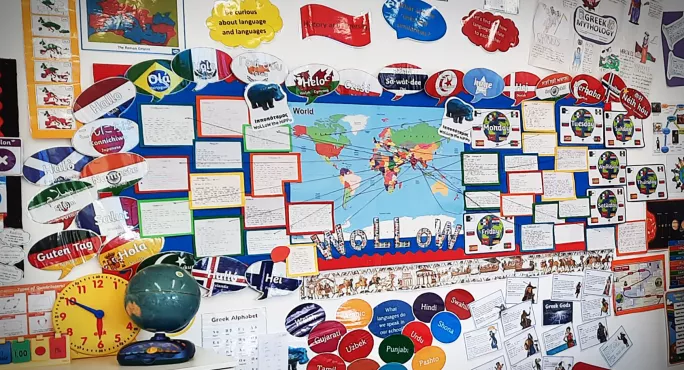Although the curriculum and assessment review’s interim report did not suggest that sweeping changes are on the horizon, there is one subject that it cited as having a clear issue: languages, in particular primary languages.
“Many submissions have argued for improvements in a range of curriculum subjects. Some of these are minor...and some are major (for example, suggestions of a lack of efficacy in modern foreign language teaching in primary and transition to secondary),” the report states.
It’s not really a surprise that primary languages are being given such specific attention.
After all, while the requirement for schools to teach languages came in in 2014, and it must have seemed a good idea at the time, reality has clearly not matched the ideal.
Languages squeezed out in schools
Whether you read the British Council’s annual report on language trends, or talk to primary school teachers, pupils or those learning to become primary school teachers, the song remains gloomily the same.
In a land dominated by literacy and numeracy, there is too little time or space or regard given to the teaching of languages.
It’s no one’s fault but, too often, teachers lack linguistic knowledge or confidence, and it’s no fun teaching things that you don’t know yourself.
Nor is it easy, or cheap, to import expertise. Feedback from schools certainly confirms what we all know: you aren’t going to get very far in a language on 40 minutes a week.
Finally, it doesn’t help that the provision of the national curriculum is so vague: ”Teaching may be of any modern or ancient foreign language and should focus on enabling pupils to make substantial progress in one language.”
Transition to secondary
Given all of this, it’s no wonder that transition from key stage 2 to KS3 is a problem: under the current dispensation, pupils arrive in secondary schools from different primary schools, having done different languages in different ways and to different levels.
So what choice do secondary schools have but to feel that they need to begin again? There is a need for a fundamental change of approach.
Why don’t we teach in primary schools not a language but about languages - how they work, how they are related, how they link not only to all other school subjects but also to culture and religion, to migration and empire, to identity and belonging?
In so doing, we might even convince pupils that languages are not only relevant but also a code-breaking game, even fun.
English as an additional language
What’s more, today’s pupils in today’s primary schools should be prime candidates for such an approach: more than 20 per cent of primary pupils are categorised as having English as an additional language (EAL) and in many urban primary schools there are as many as 50 languages spoken.
With this approach, pupils can find their voices and become teachers, and the teachers can learn from their pupils.
Is this possible? Yes - I know it is. For the past six years I have been working with fellow teachers on a languages programme that does all of the above. It’s called WoLLoW (World of Languages, Languages of the World) and the aim is to inspire young children to learn and love languages.
It’s free and hundreds of schools already use it, with resources that include focusing on pupils’ own multilingualism, on Greek and why physics isn’t spelt fisiks, on days of the week in different languages or why Punjab means “five waters”. Feedback has been hugely positive - perhaps my favourite testimonial was a teacher who said, “The pupils opened up like flowers.”
However, the provision of languages in primary schools is not about WoLLoW or other similar projects, nor even just about languages. It relates to other major issues, not only in the interim report but also in the very nature of our society.
The report starts with education’s contribution to a “flourishing civil society, as well as promoting social cohesion and sustaining democracy”. It talks of viewing education through the “social justice lens”, of inclusion and diversity and the need for education to be relevant to our pupils.
Perhaps most notably it states: “The national curriculum should empower teachers to foster a love of learning by enabling learning to be situated in a range of local, national and global contexts, to widen horizons, and to ensure that young people see meaningful representations of themselves in what they learn, as well as encountering and recognising the perspectives of others.”
Primary language teaching can play its part on the road to a world where pupils have a voice in any language; where their language and culture and history are valued, not alien; where boys and girls get to know themselves and their peers; where they can learn that, in an increasingly multicultural and multilingual society, we can all get on together.
John Claughton is former chief master of King Edward’s School, Birmingham, and co-founder of WoLLoW (World of Languages, Languages of the World)
For the latest education news and analysis delivered every weekday morning, sign up for the Tes Daily newsletter





